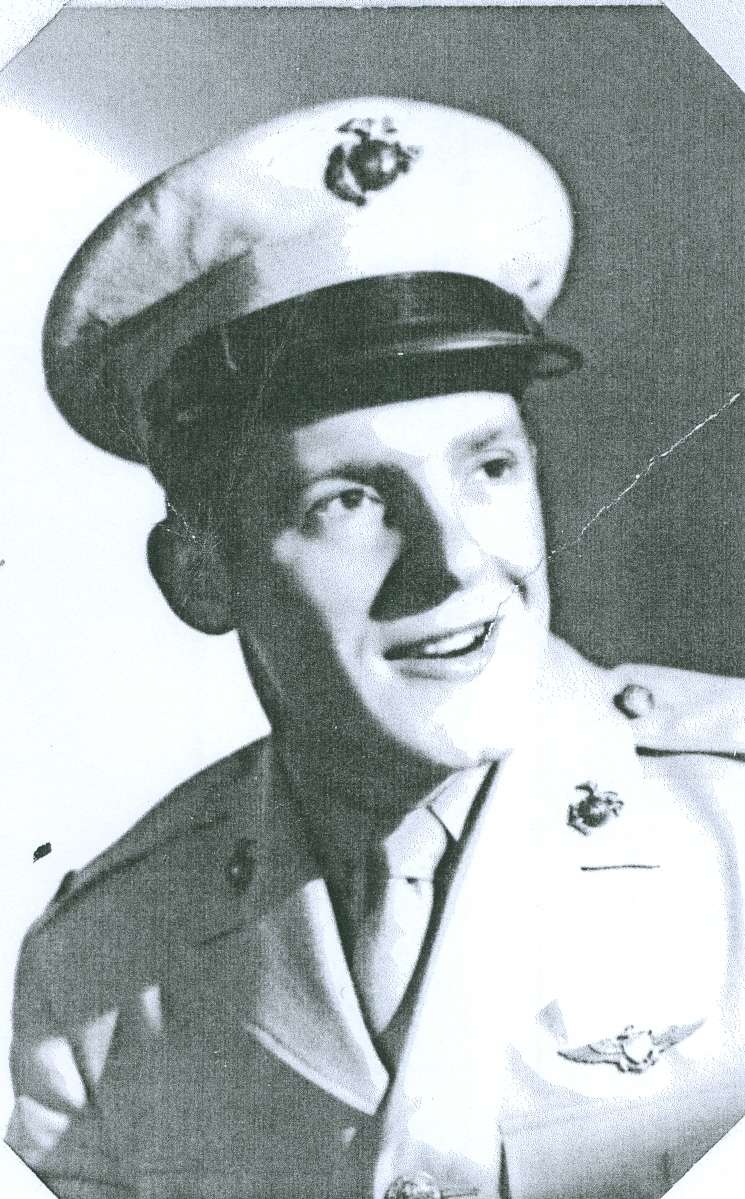Biography
Thomas Donald Odenbaugh was born on October 2, 1926 in Ottumwa, Iowa, where he grew up and graduated from high school. Things were not easy for Tom as a young person, but he rose above the difficulties to make something of himself.
He started at Iowa State in the fall of 1943 majoring in Mechanical Engineering. He joined Theta Xi fraternity and enjoyed the friendships and social round of parties, dances and sporting events that came with fraternity life.
In January 1944, he made the decision to enlist in the Marines, in the Naval Air Corps. In a letter home, he asked for his parents’ permission because he was still 17. He was called in March that year, but continued at Iowa State through the fall 1944 term, after which he eagerly departed for flight training.
He served in WW2 and upon his discharge in 1948, enlisted in the reserves. Sometime during this enlistment, he met a girl that he came to care for. When he learned that she was “in the family way” before he met her, he made the decision to offer her his name so she and the child would have an easier time.
A letter to his sister reveals much about the kind of person Tom was. He said, “When I first saw her, I have never before seen such a lonely and dejected person. Later when she told me all about it, she cried with such anguish, I knew it was real. My first thoughts were, ‘How can I help?’ I thought of marrying her strictly on a legal basis with a divorce to follow, just so the baby would have a legal claim to a name. But I knew that if I did, she would go on her way, still terribly alone with nothing to look forward to.
“So I made up my mind to marry her and to do everything in my power to make her happy and to be a father to the baby. That was the hardest thing for me to do and the biggest decision I have ever made.
“But, now, looking back, I don’t regret it one bit and would do the same thing over again. When I look at her and see how wonderfully happy she is, I feel a tenderness and a kind of love for her that could not be duplicated anywhere. I’m happy because I’m able to make someone else happy. You remember how you and I used to plan for my future and how big it was going to be. Well, I’ve come to believe that personal achievement isn’t what measures a man.”
After his discharge from the service in 1948, he continued to pursue his education in Mechanical Engineering at Iowa State from fall 1948 through winter quarter 1950, completing his junior year. He continued to be involved with his fraternity and is pictured in the house photo in 1949 and 1950. After Iowa State, he attended another school in Kansas City.
At the start of the Korean War, he was called to active duty from the reserves. He was eventually sent to Korea and assigned to a VMO-6 squadron, a Marine observation squadron. He was a pilot of a light aircraft observation plane that was used for reconnaissance and artillery spotting missions.
On September 29, 1950, a HO3S-1 Sikorsky helicopter took off from Kimpo Air Base. On it was crewman, 2nd Lt. Odenbaugh and an aerial observer. About fourteen miles north of Seoul, the aircraft was shot down.
When word was received of the crash, a rescue airship was dispatched but was also hit by enemy fire as it started to land. The back up rescue ship that was trailing from about a half mile behind reported the incident and flew overhead, reporting that the rescue chopper pilot had been killed. The back up ship couldn't enter the area due to the intensity of enemy fire. It was also reported that the aerial observer was killed in the initial crash and that 2nd Lt. Odenbaugh had landed safely. This action took place at Uijongbu, north of Seoul.
Several days later, U.S. troops reached the site of the crash and recovered the remains of the aerial observer but nothing was found of 2nd Lt. Odenbaugh.
Upon questioning several natives through an interpreter, several said that they saw North Korean soldiers with an American prisoner. They said that the American was tall, blonde and wearing a brown flight suit and further said that he was taken in the direction of Uijongbu.
In a letter to Odenbaugh's mother, it was also reported that he was seen handing over his pistol and a pack of cigarettes to the North Korean captain upon his capture.
In September 1953, a number of prisoners were released by Korea, but Odenbaugh was not among them and none of those men had any evidence that he was being held prisoner.
A declaration was made in December 1953, assuming that he had died. Tom’s sister Doris pursued every avenue she could pursue to find him, but reliable information just could not be found. Many years later, a report surfaced that his name was found scratched into the wall of a jail cell in Pyang Yang, North Korea, dated October 6, 1950.
2nd Lt. Odenbaugh is one of over 8000 American servicemen missing at the cessation of hostilities in Korea that have never been returned or accounted for.
POW-MIA Day is held annually on the 3rd Friday of September to remember all those that have never returned. Each year, ISU’s ROTC cadets stand an honor guard in Gold Star Hall in memory of those soldiers.
